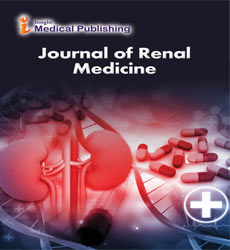Association of prescribed Chinese herbal medicine use renal disease in patients
Abstract
The evidence on whether Chinese herbal medicines affect outcome in patients with chronic kidney disease (CKD) is limited. Here we retrospectively explored the association of prescribed Chinese herbal medicine use and the risk of end-stage renal disease (ESRD) in patients with CKD. Patients with newly diagnosed CKD in the Taiwan National Health Insurance Research Database from 2000 to 2005 were categorized into new use or nonuse of prescribed Chinese herbal medicine groups. These patients were followed until death, dialysis initiation, or till the end of 2008. Among the 24,971 study patients, 11,351 were new users of prescribed Chinese herbal medicine after CKD diagnosis. Overall, after adjustment for confounding variables, the use group exhibited a significant 60% reduced ESRD risk (cause-specific hazard ratio 0.41, 95% confidence interval 0.37–0.46) compared with the nonuse group. The change was significantly large among patients using wind dampness–dispelling formulas (0.63, 0.51–0.77) or harmonizing formulas (0.59, 0.46–0.74), suggesting an independent association between specific Chinese herbal medicines and reduced ESRD risk. The findings were confirmed using propensity score matching, stratified analyses, and three weighting methods. However, dampness-dispelling and purgative formulas were associated with increased ESRD risk. Thus, specific Chinese herbal medicines are associated with reduced or enhanced ESRD risk in patients with CKD.
Open Access Journals
- Aquaculture & Veterinary Science
- Chemistry & Chemical Sciences
- Clinical Sciences
- Engineering
- General Science
- Genetics & Molecular Biology
- Health Care & Nursing
- Immunology & Microbiology
- Materials Science
- Mathematics & Physics
- Medical Sciences
- Neurology & Psychiatry
- Oncology & Cancer Science
- Pharmaceutical Sciences
